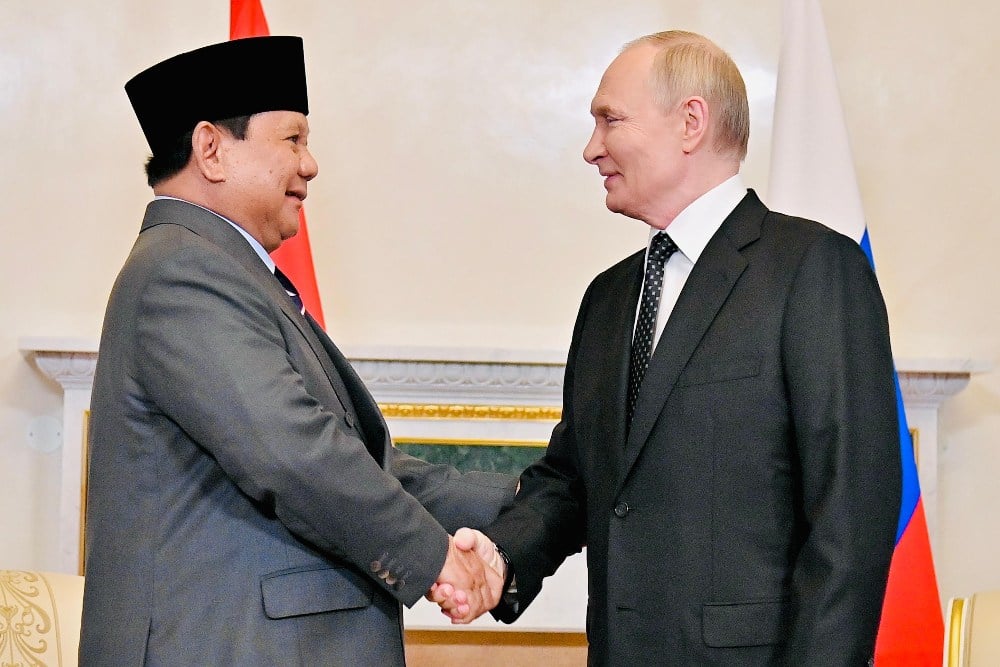As President-elect Prabowo Subianto prepares for his first appearance at the BRICS Summit, analysts are closely watching what this move could mean for Indonesia’s foreign policy direction. The summit, scheduled for next month, marks a pivotal moment not just for Prabowo’s early presidential diplomacy, but also for Indonesia’s broader international alignment.
Indonesia’s presence at the BRICS Summit—an economic bloc consisting of Brazil, Russia, India, China, South Africa, and newly expanded members like the UAE and Egypt—suggests the archipelago nation may be seeking to deepen engagement with emerging economies beyond its traditional Western allies.
What Is BRICS and Why It Matters
Originally formed as a coalition of fast-growing economies, BRICS has evolved into a geopolitical counterbalance to Western-dominated institutions such as the G7 or the IMF. The bloc emphasizes South-South cooperation, de-dollarization, and multipolar governance structures.
With ongoing tensions between the West and countries like Russia and China, BRICS has gained renewed attention as a platform for challenging traditional global power dynamics. BRICS nations collectively account for over 40 percent of the world’s population and nearly a third of global GDP, according to World Bank data.
Indonesia’s potential involvement comes at a time when BRICS is expanding its membership and scope. Several developing countries have expressed interest in joining, hoping to gain greater influence in shaping international economic policy.
Prabowo’s Strategic Calculations
For Prabowo, attending the BRICS Summit is more than just a ceremonial gesture. It provides an early opportunity to position Indonesia as a global bridge—one that is not exclusively aligned with either the U.S.-led West or China’s orbit.
Indonesia under President Joko Widodo maintained a non-aligned, pragmatic foreign policy—working closely with both Beijing and Washington. Prabowo appears likely to maintain that tradition, but his BRICS attendance indicates a willingness to further diversify Indonesia’s diplomatic and economic partnerships.
If Indonesia were to formally join BRICS in the future, it could gain greater leverage in multilateral negotiations, alternative financing mechanisms like the New Development Bank, and new channels for trade and investment, particularly in infrastructure and energy.
Economic Incentives Behind the BRICS Pivot
Joining BRICS or even just deepening cooperation with its member states could align with Indonesia’s long-term economic vision. BRICS countries offer opportunities for capital investment, energy cooperation, and technology transfers.
China, for example, remains a critical partner in Indonesia’s infrastructure development. India offers digital innovation expertise and pharmaceutical production partnerships. Brazil and Russia can supply key commodities, while South Africa provides models for industrial diversification.
For a resource-rich country like Indonesia, aligning with BRICS opens alternative export markets and reduces dependency on Western-dominated financial systems. With rising talk of de-dollarization among BRICS members, Indonesia could also explore settlements in local currencies, which might insulate it from exchange rate volatility.
What the World Will Be Watching
Prabowo’s debut at the BRICS Summit will be watched closely both at home and abroad. His statements, bilateral meetings, and body language will be parsed for clues about Indonesia’s strategic priorities.
Will Prabowo push for Indonesia’s formal membership? Or will he simply use the platform to build bilateral momentum with key BRICS leaders?
Observers are also curious how Indonesia will navigate the bloc’s internal complexities. BRICS includes countries with divergent interests—India and China, for instance, have ongoing border disputes. Russia’s war in Ukraine also remains a sensitive issue globally.
Indonesia will have to walk a tightrope: engaging the bloc without being pulled into its internal contradictions or appearing to take sides in broader geopolitical rivalries.
Domestic and ASEAN Context
At home, Prabowo’s BRICS engagement may be welcomed by business leaders seeking to expand exports and attract investment from non-Western countries. However, critics may question whether the move risks diluting Indonesia’s current diplomatic balance.
Within ASEAN, Indonesia’s engagement with BRICS may also influence regional dynamics. If Jakarta joins the bloc or expands cooperation, neighboring countries may follow suit or recalibrate their external partnerships. It could add complexity to ASEAN’s collective neutrality position amid growing U.S.-China competition in Southeast Asia.
Strategic Significance Going Forward
Prabowo’s decision to attend the BRICS Summit could mark a key turning point in Indonesia’s global role. While Jakarta has long touted its “free and active” foreign policy doctrine, the realities of a fragmented world order may push it to engage more deeply with alternative groupings like BRICS.
The economic and political benefits of such engagement are considerable. However, so are the risks—particularly if Indonesia becomes perceived as leaning too far into any one camp. Much will depend on how Prabowo positions Indonesia during the summit, and how skillfully his administration navigates future diplomatic engagements.
Regardless of immediate outcomes, one thing is clear: Indonesia’s participation in the BRICS Summit reflects a growing desire to reshape its role on the global stage. Prabowo's early diplomacy may signal a bolder and more diversified foreign policy in the years ahead.
Read More






 Friday, 27-02-26
Friday, 27-02-26







